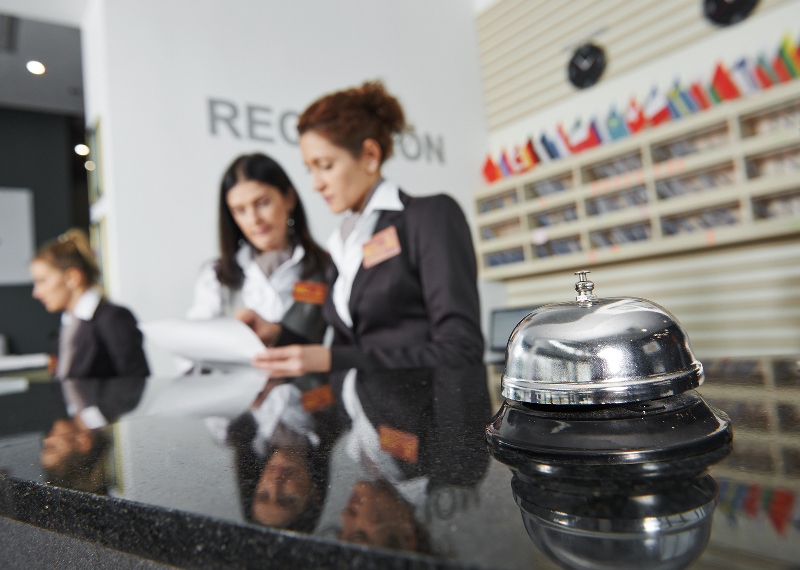A receptionist is the first person one comes across, the person that welcomes you upon visiting a hotel, another hospitality facility or a company.
They provide basic information on methods of operation, possibilities and services the company provides. Also, they are there to resolve every possible issue, doubt or uncertainty. Pretty often, they are the only representatives of a company a guest or a client communicates with. Hence the saying that a receptionist is the face of the company.
When guests visit a hotel, they can not see the efforts and hard work of every back-office department.
Most commonly, guest can perceive only the service and welcome they receive upon their arrival, stay and check-out. It is the task of a receptionist to find the best way to welcome their guests and present them with the entire offer and services the hotel provides.
Reception work requires specific skills and abilities, and basic skills that make a good receptionist are:
- Communication skills
Communication with clients and other departments is the key skill a receptionist must have. Positive attitude, friendly approach to clients, understanding and ability to present the services hotel offers clearly are a must. Receptionists are at client’s service at all times,
so they should know how to listen and meet client’s wishes, both in person, and on the telephone.
Communication has to be formal, in line with hotel’s rules and policies. The receptionist must provide clients with all necessary information at any point. A good receptionist is always at service.
Receptionists have to speak at least one foreign language, preferably several.
- Organizational skills
Receptionists often have to multi task. It is not unusual to have larger group of guests checking in, several telephone lines ringing, and an inquiry arriving by e-mail.
They know how to hold it together under pressure, and not to panic. In such circumstances, it is crucial to prioritize, so that guests feels served and as if they always
come first.
Even though these situations are stressful, it is the duty of a receptionist to stay calm, welcoming and above all, polite.
- Operational and administrative skills
A receptionist must know how to use all needed computer programs. Operating the hotel system and doing all supporting administrative tasks is everyday job of a receptionist.
Copying documents, sending emails and faxes, creating and updating excel sheets or filling documents are just some of their duties.
- Problem-solving abilities
Working with people requires a lot of patience and tolerance. Receptionists deal with clients that have different demands and expectations on daily basis. If a guest is unsatisfied with some service, they’ll come to the receptionist.
These situations can be unpleasant, but the staff has to have an answer to every problem that may come up, and offer solutions in order to maintain client’s satisfaction. Receptionist’s duties are seemingly simple, but the truth is that this job is very complex and demanding, and given the fact that it involves everyday interaction with people, it is also stressful.
Resourcefulness, responsiveness, communication, responsibility, independence in work, organizational skills, compulsory knowledge of foreign languages, and computer skills are just some of necessary qualifications a receptionist has to have.
Most often, guests’ impressions of a hotel are greatly related to the hospitality of its staff and the service they get, what makes the receptionist an important link of hotel’s business operations.







































 Srpski
Srpski English
English